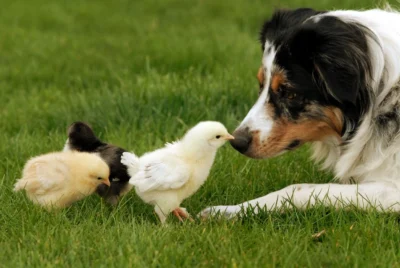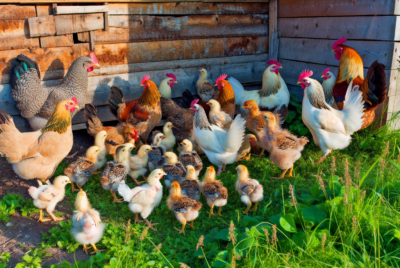Truth or Myth: Will Chickens Stop Laying if Coop is Dirty?
If you’ve ever tried raising backyard chickens, you know how gratifying it is to gather freshly laid eggs each morning. But what happens when your productive laying hens suddenly reduce their egg-laying rate or, even worse, stop entirely? Among the many potential culprits, one question that frequently pops up is about the cleanliness of the coop. “Will chickens stop laying if the coop is dirty?” – it’s a worry that keeps many poultry enthusiasts up at night.
After all, a dirty coop isn’t just an unpleasant sight; it can be a breeding ground for pests, diseases, and poor overall hen health. But can it truly affect your chickens’ egg-laying capabilities? Let’s unravel this pressing poultry conundrum, separating the facts from the folklore to ensure that your feathered friends remain as productive as possible.
Will Chickens Stop Laying If Coop Is Dirty?
Yes, chickens may stop laying eggs if their coop is excessively dirty. A dirty environment can lead to elevated stress levels in the chickens and potentially cause disease, which can adversely affect their egg-laying ability. Moreover, a dirty coop may attract pests or predators, further heightening the stress level of the hens.
The chickens need a clean, safe, and stress-free environment to produce eggs consistently. Regular cleaning of the chicken coop is a crucial aspect of poultry management to ensure the health and productivity of your flock.
Read also: Raising Chickens 101: When Do Chickens Start Laying Eggs?
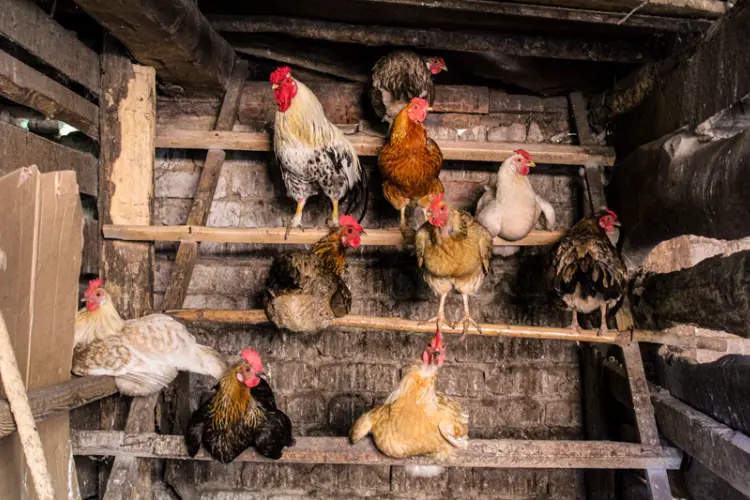
How Dirty Coops Affect Chickens?
A clean environment is essential for maintaining the health and productivity of your chickens. When coops become overly dirty, several adverse effects can impact your flock, which might not always be immediately visible as chickens continue their usual routines.
Cold Environment
Dirty bedding can become damp, which in turn lowers the insulation properties of the material. As a result, the coop becomes cold, which can be particularly problematic in colder climates or during winter. Chickens in such conditions will use more energy to stay warm rather than for laying eggs, leading to decreased productivity.
Breathing Issues
Accumulated droppings, dust, and damp bedding in a dirty coop can lead to poor air quality. High ammonia levels from droppings can irritate and potentially harm the chickens’ respiratory systems, leading to bronchitis or other respiratory diseases. This not only affects their overall health but can also result in decreased egg production.
Risk of Eating Droppings
In an overly dirty coop, there’s a higher likelihood that chickens will come into contact with and accidentally ingest fecal matter. This can introduce harmful bacteria and parasites into their digestive system, leading to coccidiosis or salmonella. Both can seriously impact their health and disrupt egg-laying.
Ammonia Build-Up
Ammonia is a gas released from chicken droppings. In a dirty coop where droppings are not regularly cleaned, ammonia levels can quickly rise. High concentrations of ammonia are harmful, irritating to the eyes, skin, and respiratory tract of chickens, and in severe cases, can lead to burns or even fatalities. Additionally, long-term exposure can lead to decreased egg production and increased susceptibility to diseases.
Other Coop Conditions Why Chickens Stop Laying Eggs
Space
Overcrowding in a chicken coop can lead to several problems that affect egg production. If hens don’t have enough space to move, eat, and sleep comfortably, it can cause them stress, which is a common reason why broody hens stop laying eggs.
Overcrowding can also lead to aggressive behavior, such as pecking and fighting, resulting in injuries and further stress. Moreover, it can facilitate the spread of diseases, parasites, and pests, which can affect the health of your chickens and, consequently, their productivity.
If you’re considering building or buying a coop for around ten chickens and want to ensure you give them the best environment possible, delve into our Best Chicken Coop for 10 Chickens review article. It provides insights and recommendations to ensure optimal space and living conditions for your birds.

Ventilation
Adequate ventilation in a chicken coop is crucial for maintaining good air quality. Chickens generate a significant amount of moisture and ammonia through their respiration and droppings. If these substances build up, it can lead to respiratory problems and other health issues, which can negatively affect hen’s egg production.
Temperature
Chickens can tolerate a wide range of temperatures, but extreme cold or heat can stress them and reduce their egg-laying. In hot weather, chickens can become overheated, which can cause heat stress and even heatstroke.
In cold weather, chickens have to expend more energy to stay warm, which can divert resources away from egg production. Therefore, it’s important to provide shade, ventilation, and fresh water in hot weather, and insulation, wind protection, and perhaps supplemental heat in cold weather.
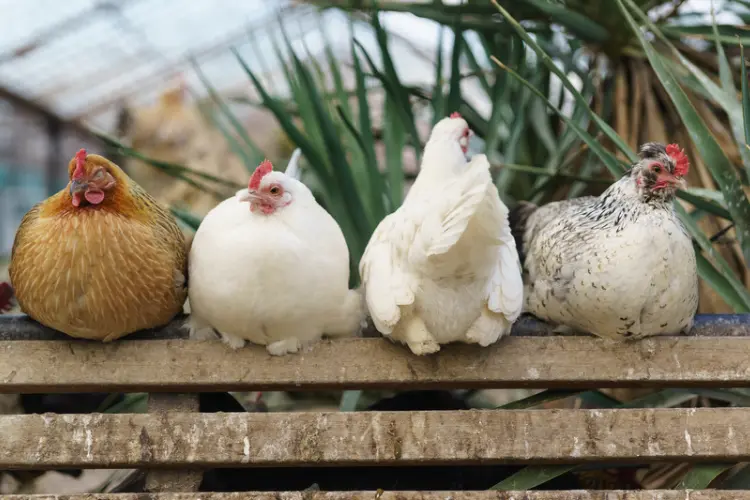
Light
Light plays a key role in stimulating a chicken’s pituitary gland to release the hormones necessary for egg production. Chickens typically need around 14-16 hours of light per day to lay eggs consistently. Without adequate light, especially during the shorter days of fall and winter, hens may stop laying or lay less frequently.
Security
Chickens lay eggs regularly when they are secure. If they are constantly threatened by predators, exposed to loud noises, or frequently disturbed, they can become stressed, affecting their egg production. It’s important to secure the coop against potential predators, provide a calm and peaceful environment, and handle the chickens gently and minimally to reduce stress.
Nesting Boxes
Chickens prefer a quiet, private place to lay their eggs. If there aren’t enough nesting boxes, hens may have to compete for nesting spots, leading to stress and fewer eggs. A general rule is to provide one nesting box for every four to five hens. The boxes should be comfortable, with soft bedding, and located in a quiet, dark part of the coop.
Read also: What Should Be Inside a Chicken Coop Today – 10 Unseen Items
Tips for Maintaining a Clean Chicken Coop
- Schedule regular cleanings. This could be daily for removing feces or spoiled food, and deeper cleans monthly or as needed.
- Ensure your coop has good ventilation to help reduce moisture and ammonia levels, keeping the coop cleaner and healthier.
- Use absorbent materials such as straw or wood shavings on the floor to absorb droppings and make clean-up easier.
- Keep nesting boxes clean by checking and clearing them daily.
- Avoid spillage by using proper feeders and drinkers. This can help prevent the build-up of waste and keep the coop cleaner.
- Install roost bars. Chickens naturally like to roost, which can keep them off the ground and help the coop stay cleaner.
- If possible, design your coop with easy access for cleaning. Consider features such as removable roosting bars and easy-access nesting boxes.
- Regularly inspect for and manage pests to prevent infestations that can dirty the coop.
- Only allow the egg-laying chickens in the coop and limit access to other animals to keep the coop cleaner.
- Regular health checks can help you spot problems that might lead to a dirty coop, like sick birds or parasites.
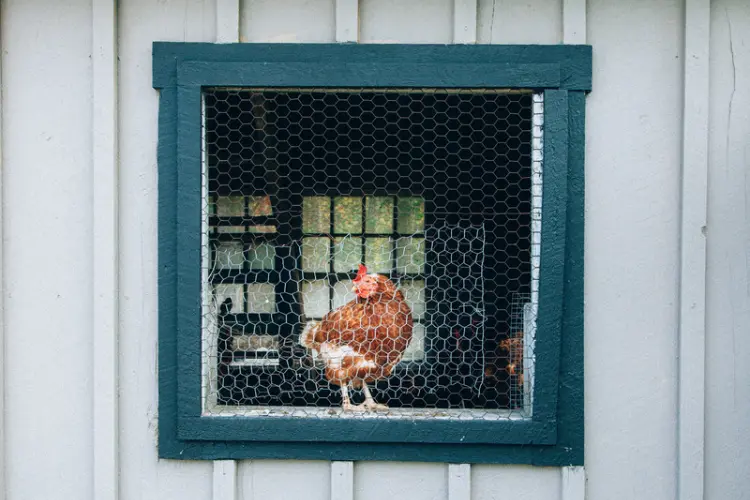
Conclusion: Will Chickens Stop Laying if Coop is Dirty?
After examining the evidence, it’s clear that chickens will stop laying if the coop is dirty. While a slightly untidy coop may not immediately halt egg production, an excessively dirty coop negatively impacts the health and well-being of the chickens, leading to stress and potential disease, both of which can be why chicken stops laying eggs.
So, maintaining a clean coop is a fundamental aspect of chicken keeping. It ensures the health and happiness of your flock and, consequently, consistent and optimal egg production. So, whether you’re raising chickens for personal or commercial purposes, cleanliness should always be a top priority.



